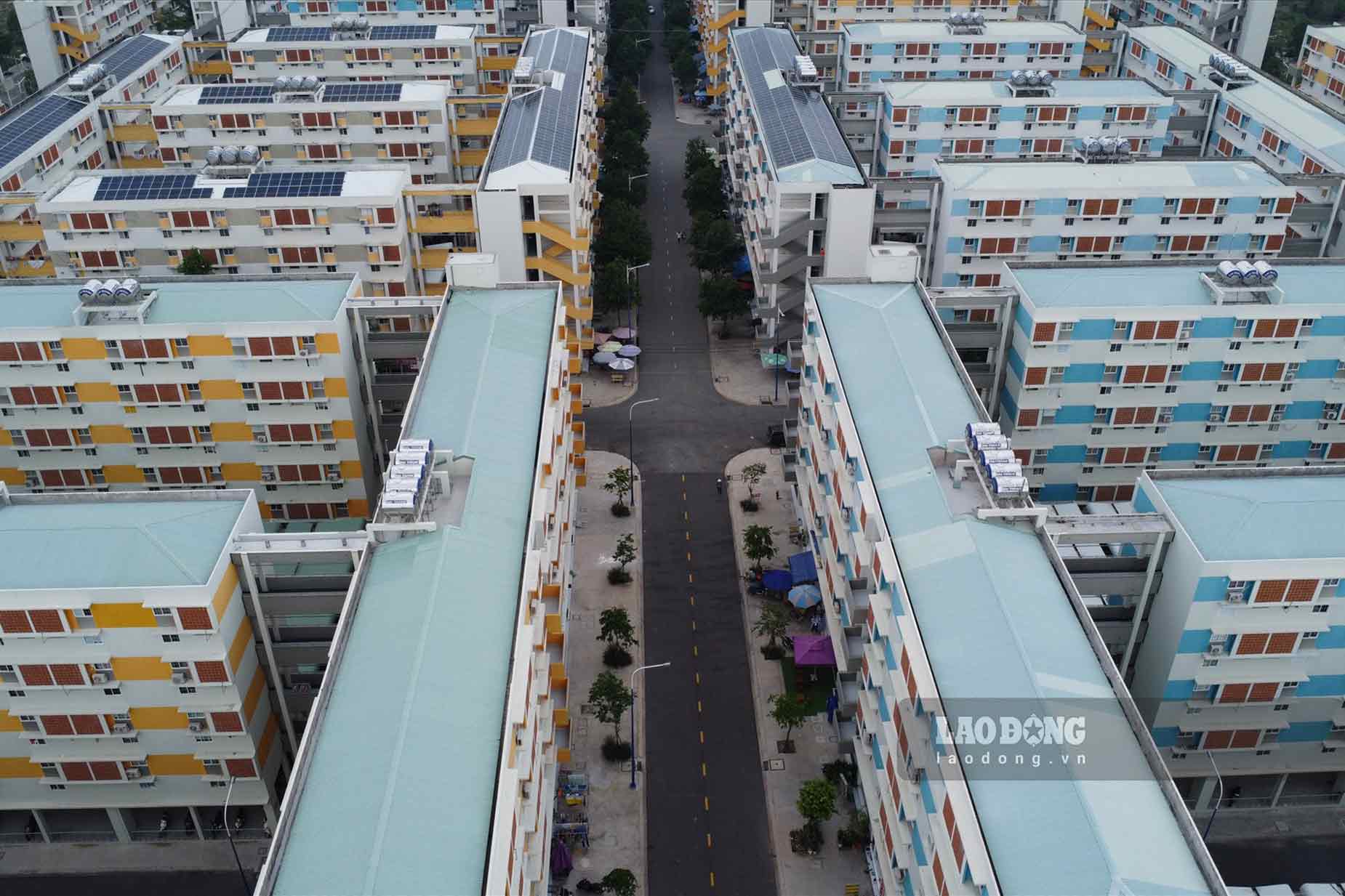Many problems in developing social housing
Recently, according to Lao Dong, social housing projects still have many shortcomings. Currently, the number of projects being implemented and opened for sale in urban areas is still very limited, while the demand for ownership of this type of housing from the people is increasing.
Most social housing projects are currently located in suburban areas, far from the center, causing inconvenience to workers working in the inner city. In addition, many people, even with real needs, still have difficulty accessing it due to difficulties in borrowing capital, because of high interest rates, short loan terms and selling prices beyond their ability to pay. Meanwhile, the rental price is no longer suitable for the income of the majority of workers.
Dr. Tran Xuan Luong - Deputy Director of the Vietnam Institute for Real Estate Market Research and Evaluation - commented that one of the biggest barriers at present is that people, despite their need to buy social housing, are very unable to access it due to complicated procedures.
On the business side, although many investors want to participate in developing social housing to contribute to the community and take advantage of preferential policies, they face difficulties in areas with high demand. The main reason comes from cumbersome and complicated administrative and legal procedures. On the other hand, the low controlled selling price and profit rate makes businesses less interested, especially when input costs such as land prices, construction costs and interest are constantly increasing.

Key to auditing social housing policies
Faced with the reality of many barriers in the development of social housing, State Auditor General Ngo Van Tuan signed Decision No. 450/QD-KTNN promulgating the Special Audit Plan for the implementation of social housing development policies for the period 2021 - 2024.
This audit outline applies to thematic audits of the implementation of social housing development policies by stages in localities conducted by the State Audit.
Based on the auditing goals and risks assessed during the survey, the auditing teams have clearly identified the key contents that need to be focused on when implementing the audit topic on the implementation of social housing development policies.
One of the first important contents is the implementation of social housing development policies in localities. Notably, it is the work of investigating, surveying and synthesizing needs to develop programs, plans, and investment targets for social housing construction. This is an important basis to ensure that the issued policies closely follow reality and the actual needs of the people.
In addition, the review, adjustment and supplementation of land use planning and planning are also put into key. The recovery of land fund for social housing development, as well as review and check the status of the current status of the planned land for social housing projects will be carefully audited. These contents are aimed at evaluating the effectiveness of implementing at least one million social houses by 2030 according to Decision No. 338/QD-TTg on 3.4.2023, and at the same time, with the requirements of wasteful prevention, especially in slow arrangement of housing for eligible subjects, subject to compensation and site clearance at construction investment projects.
Another important content is the promulgation and public announcement of standards, subjects and conditions for buying, renting or leasing social housing in the locality. In addition, the issuance of a price framework for selling, leasing, and leasing social housing under its authority is also a point that needs to be carefully audited, to ensure transparency and fairness in policy implementation.
The management of departments, branches, and local authorities for investors in social housing projects is also within the scope of audit. This content includes compliance with laws, professional processes, as well as responsibility in inspecting and examining the implementation of State regulations. The handling of investors' violations, if any, will also be considered and evaluated.
The audit will also focus on the implementation of State budget obligations of investors, as well as compliance with legal regulations on conditions for enjoying preferential policies for social housing development.
In addition to the above contents, depending on the actual situation in each locality and the specific project, the audit teams will identify other important contents to comprehensively ensure the purpose of this thematic audit.











